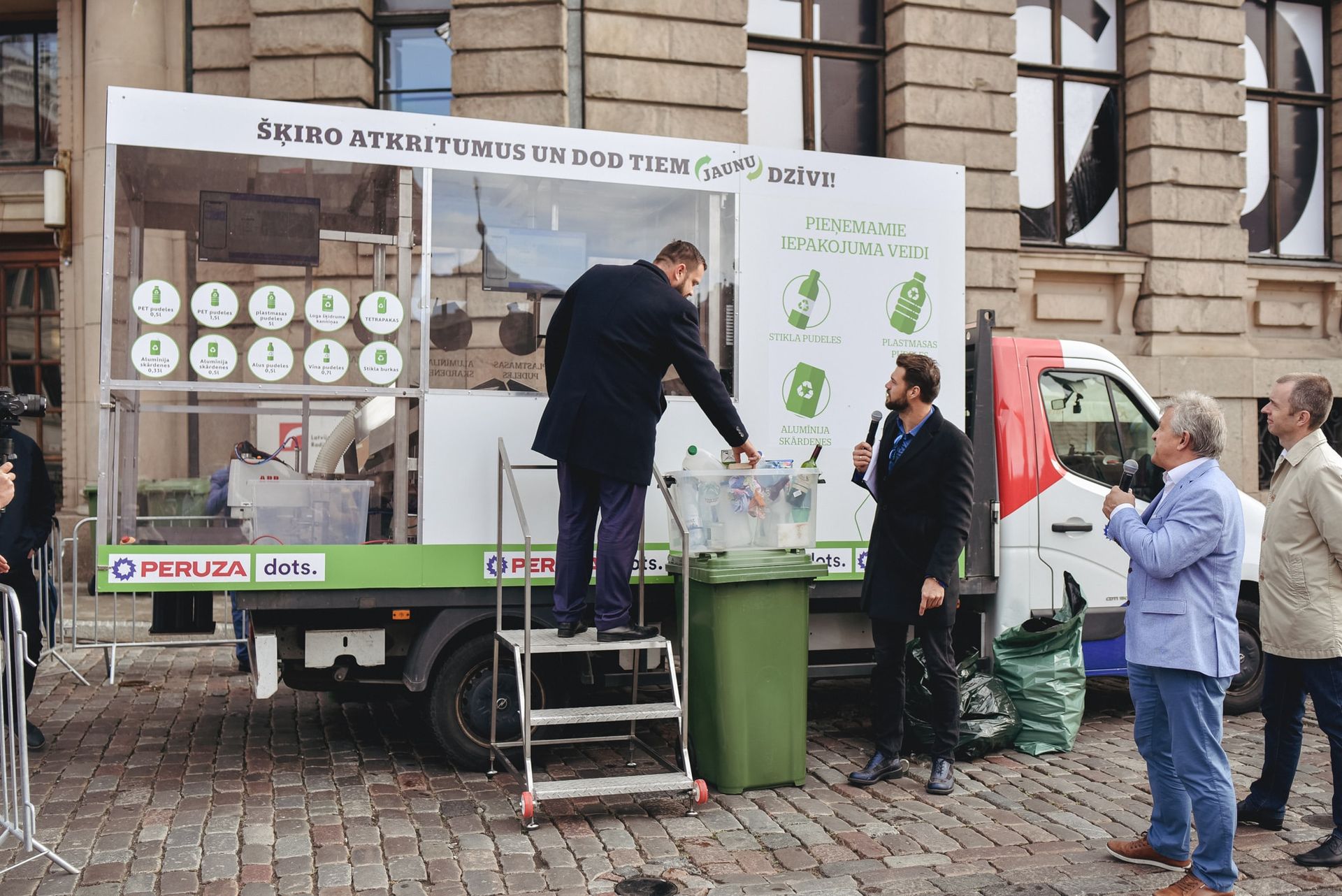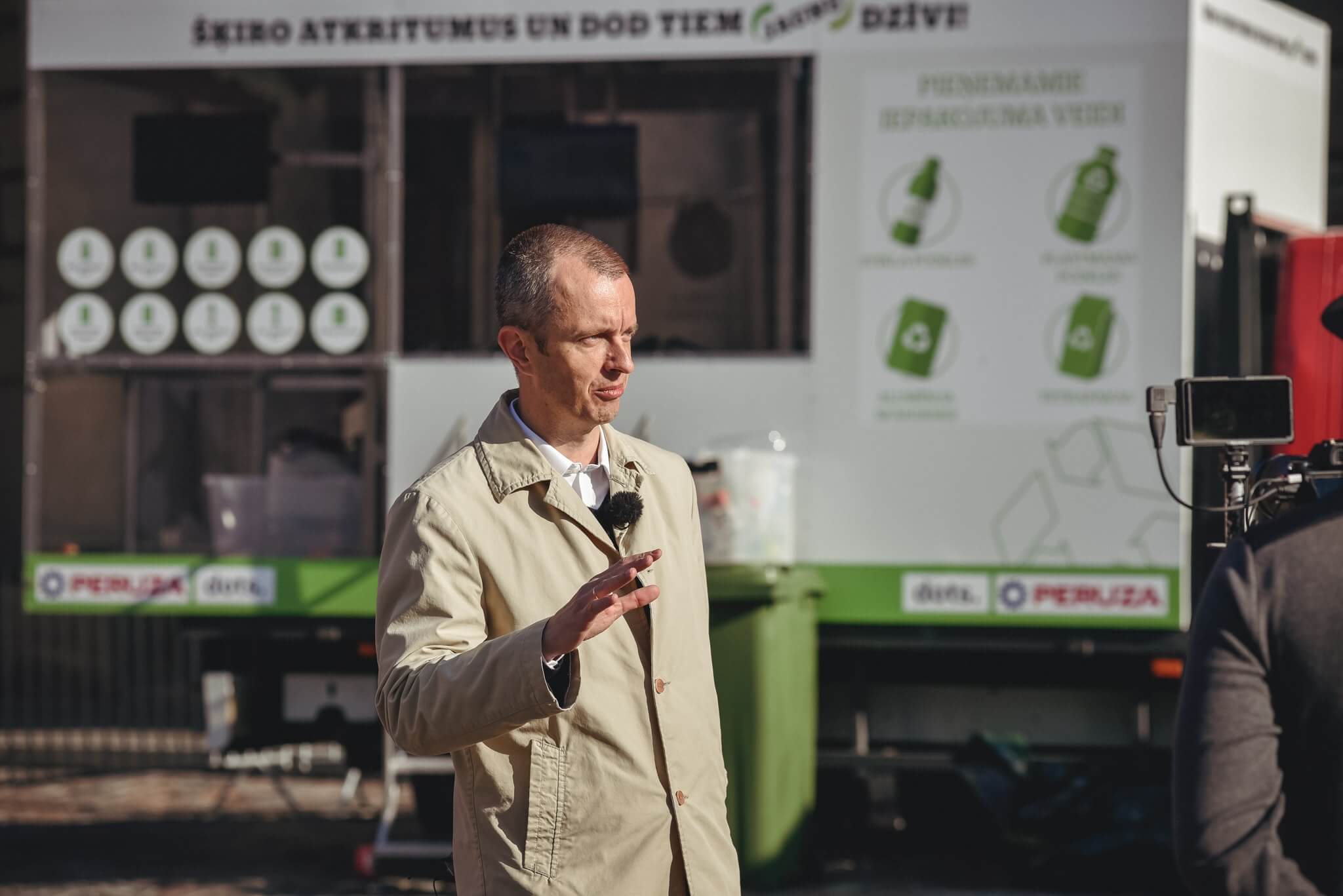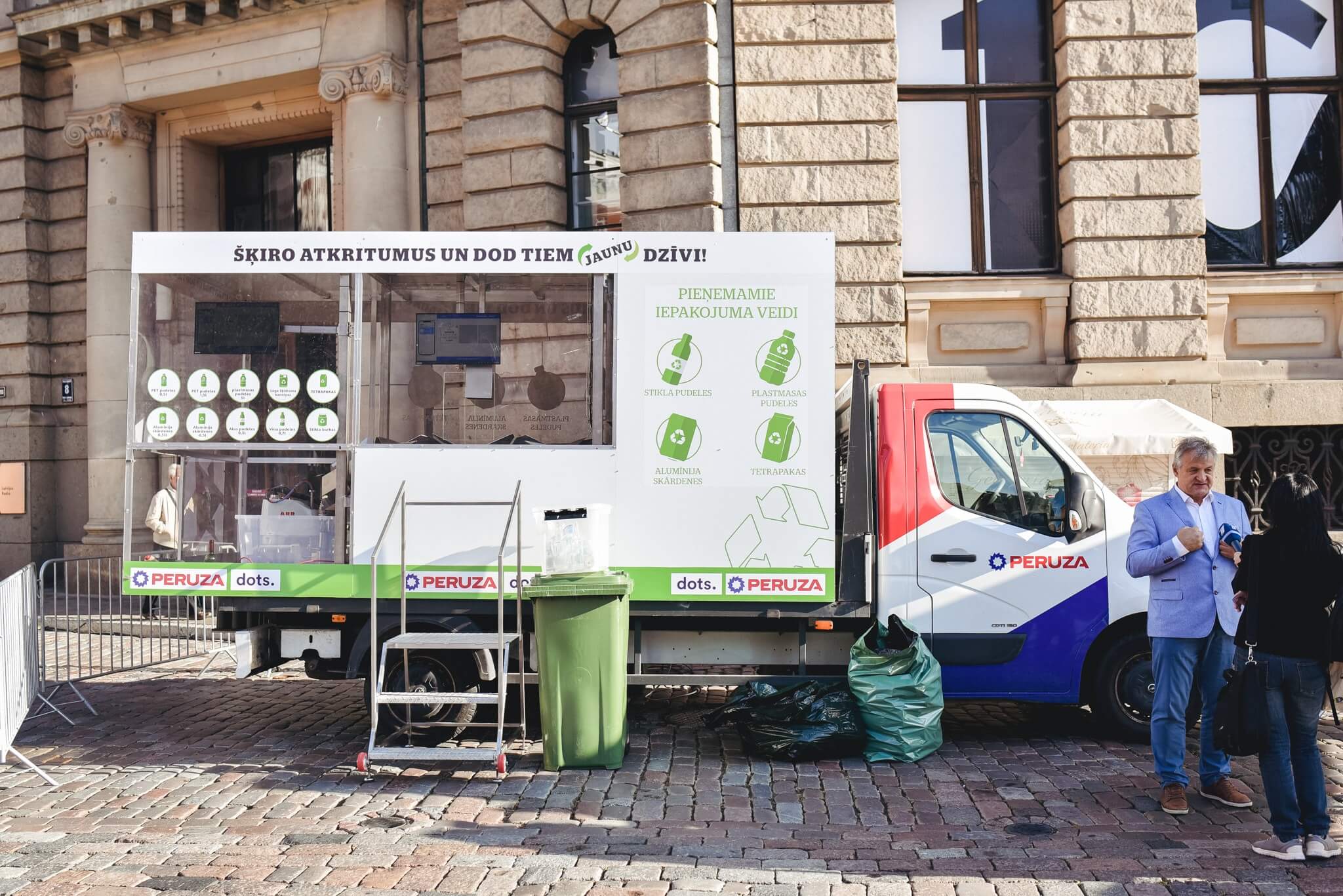
Extended Deposit Machine: We Are Ready to Implement It in Latvia and Export It Abroad
17.09.2019
News
The developed machine has a high IT and production potential. It will be presented to the general public today, in Riga Dome Square, where it can be tested in action. It is planned that the residents of other cities will also be given the chance of testing the machine in order to contribute to its further development and improvement.
“The annual amount of plastic packaging dumped into the world’s oceans is so huge, that if we divide it into 15 l shopping bags, we could line the entire world’s coastline with them. And drink packaging makes only for a small part of the total amount. In fact, this type of garbage is like a slow killer: even though we don’t feel its impact in Latvia today, without any action the consequences will be suffered by us and our children already tomorrow.
We believe that the solutions for fighting this slow killer should be simple and safe, and Latvia is currently faced with a unique opportunity to start a new generation of such solutions! Each of us should be able to come to a waste collection point and return the accumulated packaging, regardless of its origin, shape, condition or material, without thinking about which type of packaging should be thrown into which container or machine. Furthermore, it creates the confidence that the returned packaging is then appropriately recycled, rather than dumped into the same huge landfill as usual. It is precisely this solution using the latest advancements of robotics and AI that is not only at the centre of our vision but also what created the real prototype that you see today,” Aigars Jaundālders, the representative of dots. explains.

Roberts Dlohi, the member of the board of PERUZA says that the prototype is designed according to an original concept and developed by learning from already functioning solutions in other parts of the world. The work on the idea started in the Competence centre already a year ago, while discussing the concept of robotic waste sorting solutions as close to where waste is located as possible. The system is easily adjustable to recognize new types of packaging and it can separate it not only by barcode, but also by such features as shape, weight and material, which enables it to collect and recycle more packaging and subsequently reduce waste — something, that other deposit systems essentially deal with only partially. The machine is also designed to reduce manual labour or the need for humans to service the machine.
“We have created a mobile deposit machine prototype, which meets modern technology and consumer needs. Currently the market essentially offers machines that accept only a very limited range of packaging and function more as barcode scanners. So, by following global trends and consumer demand we have designed a globally unique and practical solution, which can recognize and sort different packaging with the help of AI. We have currently submitted a prototype for the inspection of the population and members of the Parliament. We will keep improving our machine in the future so we can offer it to other countries that have adopted a deposit system or plan to do so,” Roberts Dlohi, member of the board at PERUZA explains.
Today, the machine was also tested by members of the Economic, Agricultural, Environmental and Regional Policy Committee. The Committee is currently reviewing the amendments in the Packaging Law, which provide for the introduction of a deposit system in Latvia.
As of now, the machine, which was designed by PERUZA in cooperation with the IT company dots. can recognise the following types of packaging:
0.5 l and/or 1.5 l PET bottles,
5 l plastic bottles,
1.5 l plastic jerry cans (e.g. car glass cleaner packaging),
0.33 l and 0.5 l aluminium drink cans,
cartons,
0.5 l glass drink bottles,
0.7 l glass drink bottles (e.g. wine bottles) and
0.5 l glass jars.
Furthermore, if the machine receives packaging it does not recognise, it is diverted to the unidentified waste flow.
“Discussions on the introduction of a deposit system in Latvia have lasted for years, but I am very pleased to see that Latvian companies have finally created equipment that accepts packaging of varying volumes and materials. It is certainly proof of innovation here in Latvia and worldwide. In my opinion, it also confirms that already by 2020, in accordance with the amendments of the Packaging Law reviewed by the Parliament, it will be possible to introduce a more extensive, smarter deposit system, which meets modern consumption habits and motivates the population to sort and recycle various forms of waste, instead of just focusing on cans, PET and glass bottles,” Kaspars Zakulis, the Director of Latvijas Zaļais Punkts, states.
